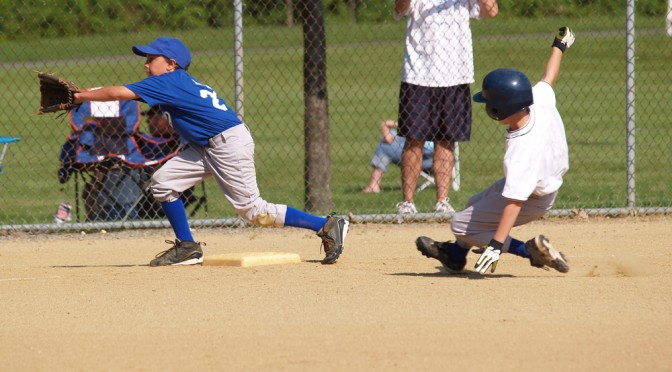Coaching Philosophies for Youth Baseball
How to effectively coach when your players are just starting out, or they’re relatively new to the game. We’ll hit on some coaching philosophies in this post, so if you’re new to coaching youth baseball, we hope you will find some useful information here.
Tip #1 – Avoid trying to teach too much
If you’ve been playing baseball for a long time, or even if you just know a lot about the sport, it can be tempting to imagine yourself passing on your years of wisdom to the young players on your team. However, one of the biggest mistakes new coaches make is in trying to teach their players too much too soon. Young players should be focusing on the basics in baseball, and they should be learning the fundamental drills that will equip them to learn more advanced techniques in the future. Hitting, catching, running the bases, and throwing should all be covered in their drills. In short, as they begin, simply focus on the basics.
Tip #2 – Focus on having fun
One important coaching philosophy is to keep it fun! Chances are, youth players are there because they are excited about being able to have fun as a member of the team. When they’re young, the focus shouldn’t be on winning and losing. In fact, in many leagues, they don’t even keep score with young players. Instead, they’ll have everyone bat through the lineup, and then the teams switch places for each inning. Concentrate on showing your players how much fun baseball can be. Make jokes, keep things light, and give them praise when they do even the smallest thing really well. They’ll end up having a ton of fun, whether they’re practicing or playing a game. Don’t stress young players out by giving out rewards for performance, unless everyone gets something!
Tip #3 – Review everything along the way
Some of the younger kids you work with will have a basic understanding of how baseball works, and some of them won’t have a clue. With each practice, you’ll review different drills, but make sure you don’t move on too fast. Observe each player’s reaction to your teaching. Use different format other than just talking, for game strategies and rulings, use white board if they are confused. Be creative, get a “movie night out” so the team watches some game footage together and engage them in discussions. Take some time and review the techniques you’ve taught them, and ask them if they have questions. In fact, before you even begin your season, emphasize to them the importance of asking questions if there’s something they don’t understand. That way they’ll be comfortable when they need to come to you for clarification. As you review, you’ll see them improve their techniques and their skill level will go up. Seeing those improvements is one of the most rewarding things about coaching.
Tip #4 – Remember to Listen
Communication is More Than Just Talking. Many coaches are great at giving pointers, but they’re not very good listeners. You’ll be amazed at how much you’ll learn from your players during the season, but only if you take the time to listen to their concerns. Let your players know that if they’re having trouble grasping a concept, they can come to you or one of your assistants to talk about the issues. Occasionally, you’re going to come across some players who show some real leadership potential, and if you’ve made it a practice to listen to your players, you’ll recognize it and be able to foster their growth and their love of the game the right way.
Tip # 5 – Allow Individual Differences
No MLB pitchers look exactly the same when they pitch. So let’s admit it, there are more than one ways to do it right. Don’t be too mechanical when teaching youth baseball. Observe carefully what works naturely for a young player. Do not tell them that they are doing something wrong just because it is different from the books, especially if they are hitting the ball like a future star in the hall of fame!
As a youth baseball coach, it’s important for you to remember that:
You have the ability to greatly influence your players. Your players will remember how good or how bad you communicated with them. Your communication with them will play a large part in how they feel about baseball.
The way you communicate with your players will mean the difference between a team that really loves the game of baseball, and one that doesn’t. If you learn how to communicate with them the right way, even the players who start out with bad attitudes will come around, because they’ll be following the excellent example you’ve set for them.
Good Luck!

